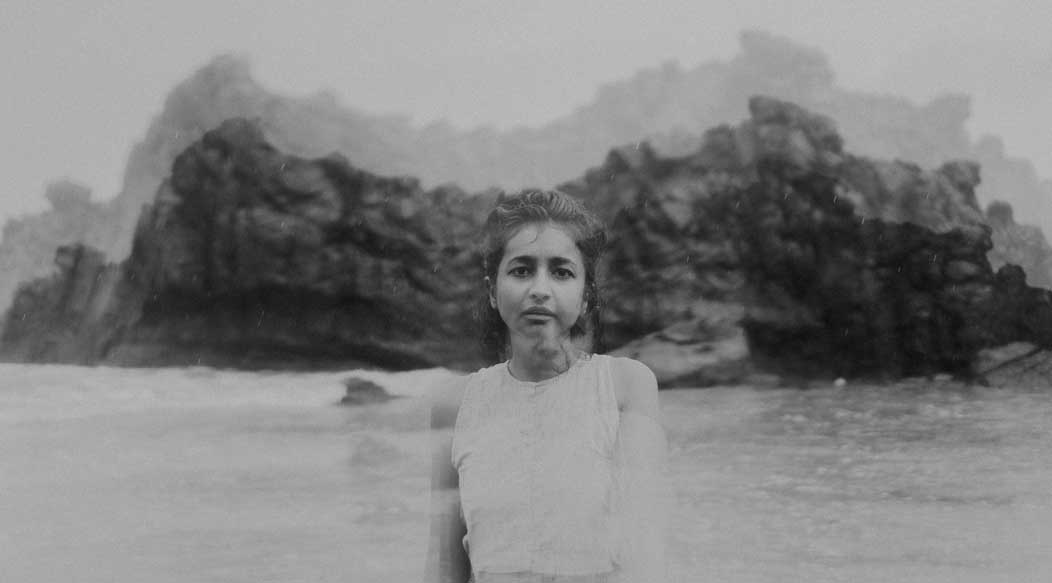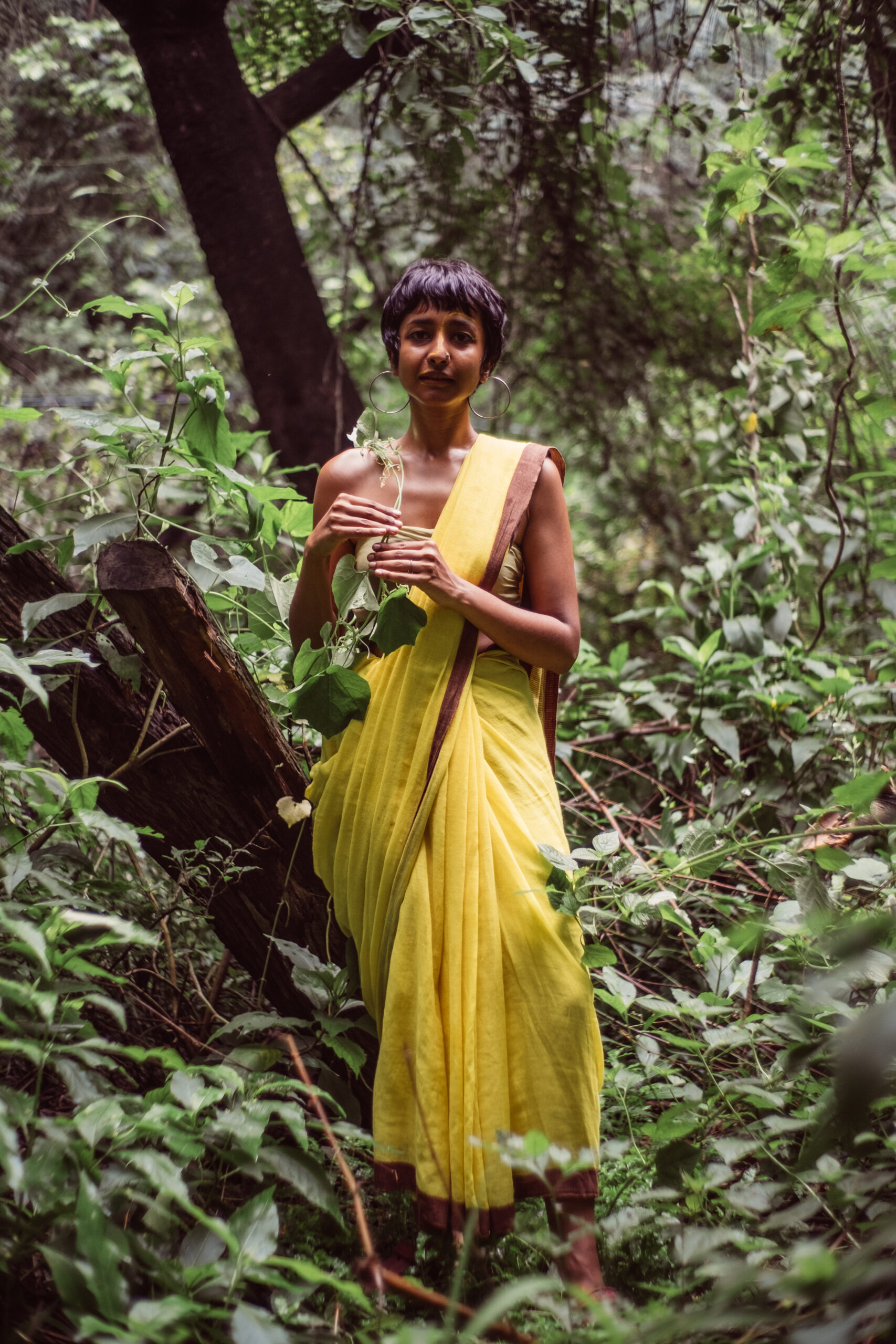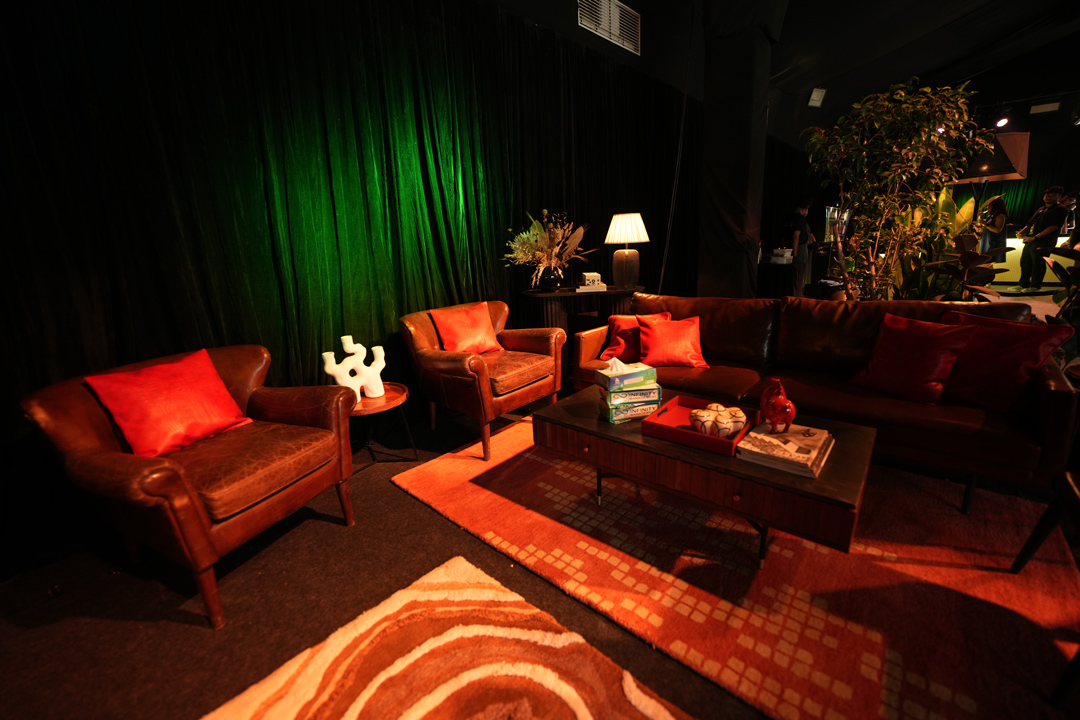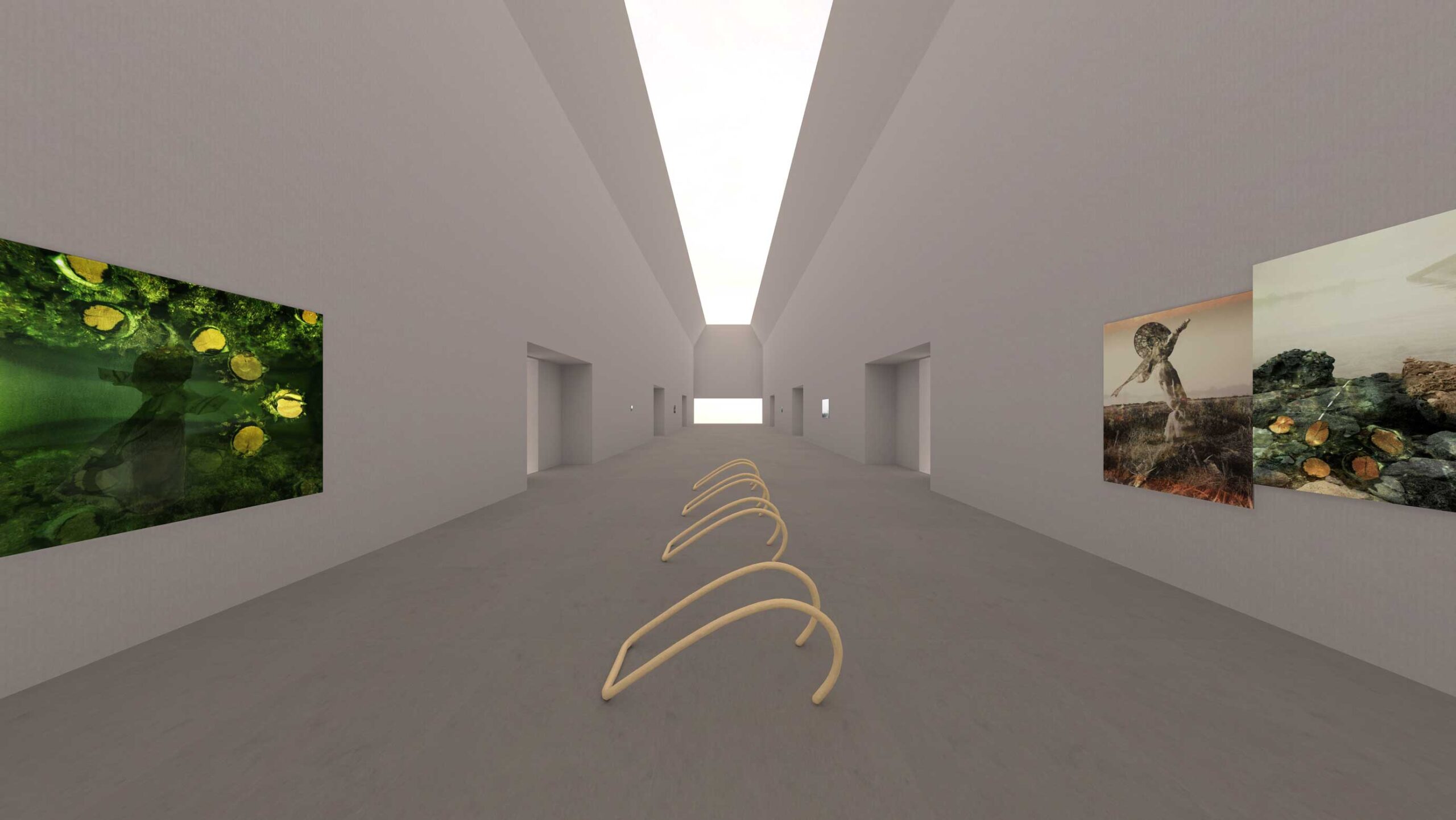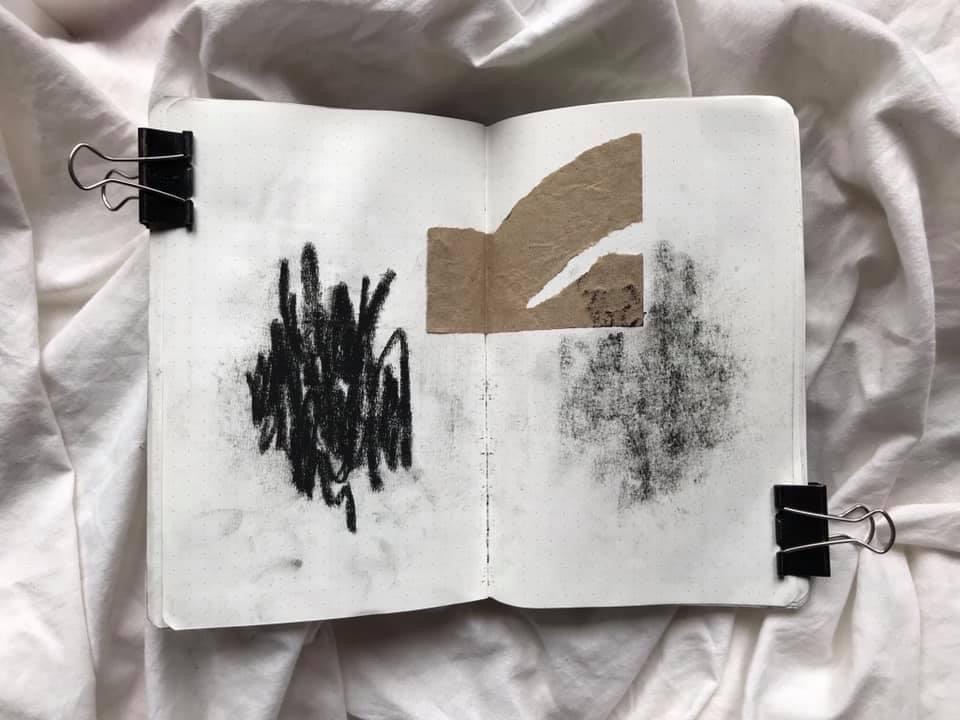Ditty to the world of indie music, Aditi Veena is one of the most refreshing artists in the Indian scene. From her synth-pop hit Deathcab to her introspective musings with food city, the diversity in her discography is worth paying attention to. She spoke to me about her dual yet synergized identities of the musician/urban ecologist, songwriting evolution and the role of music in the world.
Stepping on imaginary cobblestones we travel back to Ditty’s childhood, the city of New Delhi. Living with her family and siblings in an ancestral home nestled in a cozy neighborhood, she recounts having enjoyed the times when she was young. The sprawling gardens, sounds of birds are what characterized her early life; the complete immersion of the self in nature. So, at this point, it’s safe to say Nature and Ditty go way back. A key-person who was responsible for shaping her relationship with the earth was her mother, who was a botanist.
As time passed by, Delhi and Ditty became older. The city’s transformation to a place synonymous with pollution deeply disturbed her. Further, she went on to study urban ecology and architecture in college. Observing the environment and gaining awareness because of her courses, she started understanding the dynamic changes that perturbed the city then and even now. Recalling her studies of the past, she says that her syllabi prompted her to read a lot about the history of the city. “I remember reading a lot about Edward Lutyens, the landscape, construction, and design of Delhi”. At the back of her head, she pondered about the larger questions of human destruction of nature and looming climate crisis whilst going through university.
In dealing with these perilous issues that often mull with existentialism, Ditty’s way of channeling would be through writing. Words helped her make sense of how she felt about the destruction and chaos that now surrounded her. The songs that she writes have a distinct flow and it often feels like her thoughts are strung together perfectly in her sentences. On questioning, if it is a form of catharsis for her, she agrees that it certainly is.
Ditty never set out to become a musician, as life does happen to all of us for her too it did. Mumblings and Poetry Ceylon, her collection of songs are contemplative ballads masked under mellow house party slow jams. “The intention of writing about nature was not a conscious one”. As an urban ecologist she needed to deal with a lot of despair. Songwriting is her way of processing the happenings of the world.
The growth of lyrically and vocally is starkly visible from Mumblings to Poetry Ceylon. The start of her journey, Mumblings was an experiment borne out of dealing with a sudden loss in the family. The emotional and vulnerable experience of grieving was channeled into her first EP. On it she dedicates a song for her mother and her brother. A retrospective glance reveals that she considers Mumblings to be a musical experiment. Ditty feels that there has been an eminent development in her position as an artist from a singer to a musician. The skill of being able to handle the guitar more now makes her happy.
Poetry Ceylon, the album that is a myriad of textures and layers is Ditty’s best yet. Exploring Sri Lanka while working there truly inspired her. Her fondest memories are the oceans and waves. She says “It completely transformed me and brought peace.” The writing and the genre largely unexplored by Indian artists comes as a treat to the ears. The exploration of existential dread that rises from nature’s deterioration is wistfully captured by spoken word poetry sprinkled in her songs. The bittersweet truths revealed to us in the form of poetry are reminiscent to Emily Dickinson’s poems only darker.
“Oh city life
I bid you goodbye
I am now on an island
we were meant to be brothers
not silent neighbors
corporations and prostitution
they spell pollution”
– On an Island, Poetry Ceylon
The current state of the world is upsetting – the fast fashion industry, the leather goods industry, plastic now eating up the ocean. On this Ditty says “The only way forward is valuing one’s life and it’s important, the way we treat each other, our attitude towards things, every living being should make us more mindful in the future”
Apart from the degeneration of the environment pushed to the brink by the human race, the world has been grappling with a pandemic. The suddenness of it all, left Ditty without her beloved guitar which rests in Goa, her coping mechanism was lost. Meditation brought her calm. Her tour which was to be this year has been postponed. Lockdowns and quarantines – that time was very much needed for her to sit, think and reflect. Tough months have prevailed for everybody, witness to the ravages of the pandemic she knows a lot of people who have lost businesses, relationships and livelihoods. Introspection was integral to her these couple of months.
In more anxiety inducing news, by 2025, 1.8 billion people will be living in countries or regions with absolute water scarcity, according to UN-Water. Ditty has been in Germany working with the organisation Viva Con Agua to write a water-themed record called Rain is Coming. The history of this project originates in Varanasi where Ditty met two artists – Keno and David Raddish. They connected strongly with each other and spoke about a lot of topics and issues that resonated with them in tandem. Their talks on collaborating resulted in them getting a record which was a surprise as they had not planned for a release of an entire album. The opportunity to raise money and donate half of it to the Viva Con Agua Initiative was extremely exciting for Ditty. The process of creating this album gave the artists a chance to visit rural towns and villages to perform and create songs with communities like the Jal Sahelis. The music on the album is not her usual type of music Ditty quips, but is enthralled about the collaborative project and is eager to present it to the world
Rain is Coming releases on 22nd March 2021 to raise funds for water conservation in Nepal, Malawi, Zimbabwe and India.
Lastly, I asked Ditty: If the audience could take away one thing from your music what would it be? “Connectedness and feeling. Let go and feel the emotions through the songs”
Text and curation by Jyotsna Iyer.
Photo by Debjit Banerjee.


